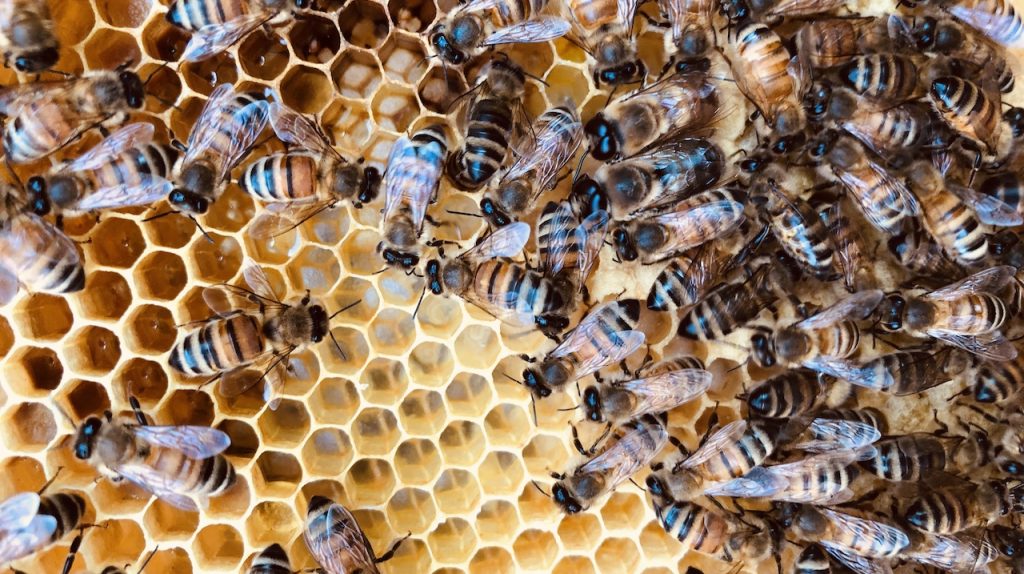Detroit Hives working to transform vacant lots into pollinator habitats
The nonprofit is expanding its operations to eight more vacant lots in the city after receiving funding from the Southeast Michigan Resilience Fund.

The ancient art of beekeeping, or apiculture, spans back to the days of Egyptian emperors. However, it’s not often seen as an activity done in inner city neighborhoods.
Detroit Hives is a nonprofit working to create sustainable communities and bee populations by transforming vacant lots into pollinator friendly spaces. Their mission centers on conservation, revitalization and education.
Co-founder of Detroit Hives Timothy Jackson says most of their hives and conservation efforts are on the east side.
“We were seeing a lot of things happen in our city, particularly around vacant lots. We wanted to find a way, how do we mitigate the issue around vacant lots, around crime, blight, and then also an area to really engage our community,” Jackson said. “We found a connection through pollinators, through honey bees. So we started a mission to improve the quality of life not only for people, but also for pollinators by transforming and converting these vacant lots into educational green spaces or apiaries.”
With help from the National Fish and Wildlife Foundation’s Southeast Michigan Resilience Fund, the organization is expanding to eight more vacant lots in the city.
“This directly aligns with our mission of making Detroit a bee city, which includes working on and creating and enhancing pollinator habitats on public and private land,” Jackson said.
Community education is another important part of Detroit Hives, not only the environmental benefits but health benefits, Jacksons says. Native bee species in their role as pollinators are responsible for 90% of our food.
“If there were to be a shortage of these pollinators, there’ll be a high cost in a lot of our fruits and vegetables in the stores today,” Jackson says.
There’s also many health benefits to honey. Jackson calls it a “swiss army knife” for its many uses. It can be used as a hair moisturizer, natural bandaid, to treat a cough, and of course as a natural sweetener.
You can find Detroit Hives honey sold in stores and online at detroithives.org.
Use the media player above to hear the full interview from “The Metro” with Detroit Hives Co-founder Timothy Jackson.
Support Detroit Public Radio.
WDET is celebrating 75 years of people powered radio during our 2024 Spring Fundraiser, now through March 24. Become a member and invest in WDET’s next chapter of news, music and conversation.
